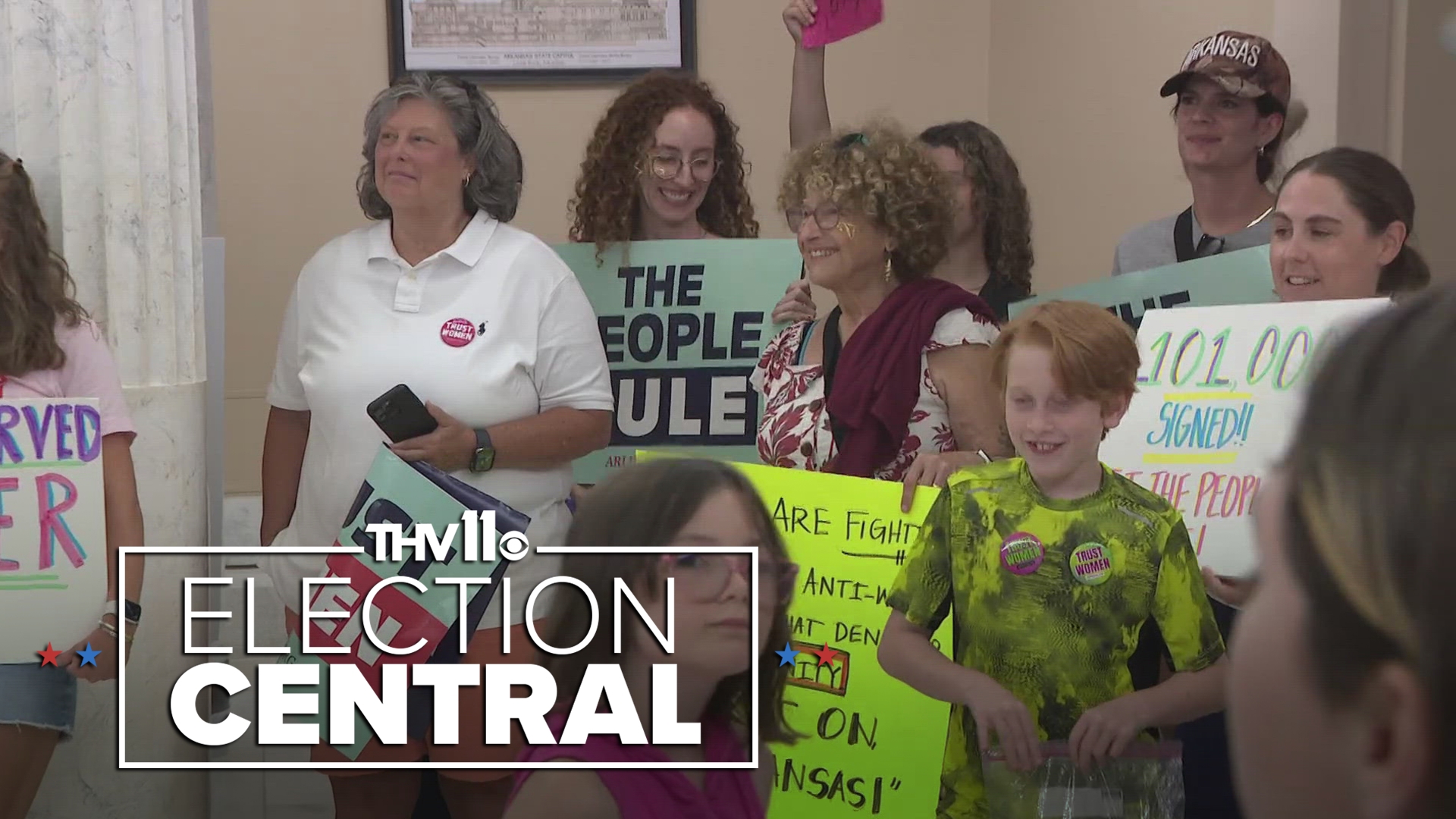LITTLE ROCK, Ark. — July 5 is the deadline for Arkansans to get a proposed amendment on the upcoming November ballot. Featuring proposed amendments on issues such as abortion access, medical marijuana prescriptions, and casino construction in Arkansas — Arkansans were given the chance to sign petitions centered around controversial topics in the Natural State.
In order to get their proposed amendment onto the November ballot, organizers need 90,704 signatures from registered voters in the state, along with representation from at least 50 counties in Arkansas.
Here's a look at the status of each proposed amendment on the final day to qualify.
Arkansas for Limited Government stated that signatures from 53 counties reached the qualifying minimum, exceeding the state's required 50. They are working to finalize their signature count, but currently have over 100,000 signatures processed.
The Secretary of State will complete the count and check signatures against voter records to verify that each signature represents a registered Arkansas voter.
Lauren Cowles, executive director of Arkansans for Limited Government, issued a statement where she confirmed that the group delivered over 100,000 signatures.
"By our count, we have exceeded the minimum signature threshold for both the statewide total and county totals," Cowles said.
Local Voters in Charge announced that the group submitted 162,181 signatures to the office of Secretary of State John Thurston, putting Arkansas voters one step closer to having the final say on whether casinos can be built in their communities.
The proposed amendment would require a countywide special election before building any new casinos or issuing casino licenses in the state.
“In record numbers, the people of Arkansas have supported our campaign to give local voters the final say on whether a casino should be built in their town or not,” said Local Voters in Charge committee member Hans Stiritz.
Arkansans for Patient Access (APA) announced the submission of over 111,000 petition signatures, spanning 62 counties in the state.
The amendment, if passed, would allow more healthcare professionals to prescribe marijuana to patients.
Those healthcare professionals include medical and osteopathic doctors, nurse practitioners, physician's assistants, and pharmacists.
The measure also adds medical conditions that a patient could be diagnosed with that marijuana could be used as treatment. Medical marijuana would be a treatment for any condition that a "health care practitioner considers debilitating to a patient that might be alleviated by the use of usable marijuana."
For AR Kids, a coalition determined to amend the education clause of the Arkansas Constitution, failed to get enough signatures to add the Educational Rights Amendment to the November ballot.
The group said it had raised only 69,968 of the 90,704 required signatures when Friday's deadline to get a proposed amendment on this fall's ballot closed.
Despite For AR Kids falling 20,736 signatures short, they said they're remaining "optimistic and grateful" and hope to get the Educational Right Amendment on a future ballot.
In a press release sent by the Arkansas Press Association, it was announced that a proposed amendment to the state's Freedom of Information Act (FOIA) failed to obtain enough signatures to qualify for the upcoming November ballot.
A group of residents working under the name "Arkansas Citizens for Transparency" started the proposal back in September and were aiming to see FOIA laws protected by the state's constitution, as they're currently not in the constitution.
The announcement, which was given by FOIA and Arkansas Press Association representatives, shared their efforts fell short despite collecting signatures from the required 50 counties in Arkansas.
The Arkansas Period Poverty Project failed to gather enough signatures to get an act on this year's ballot that would have saved people money on feminine hygiene products and diapers.
As Friday's deadline passed, the group submitted 43,831 signatures, missing its goal by 31,169. The proposed act aimed to remove the sales and use tax from feminine hygiene products and diapers.
Feminine products included:
- Tampons
- Pantyliners
- Menstrual cups
- Sanitary napkins
- Any other product associated with "the human menstrual cycle"

